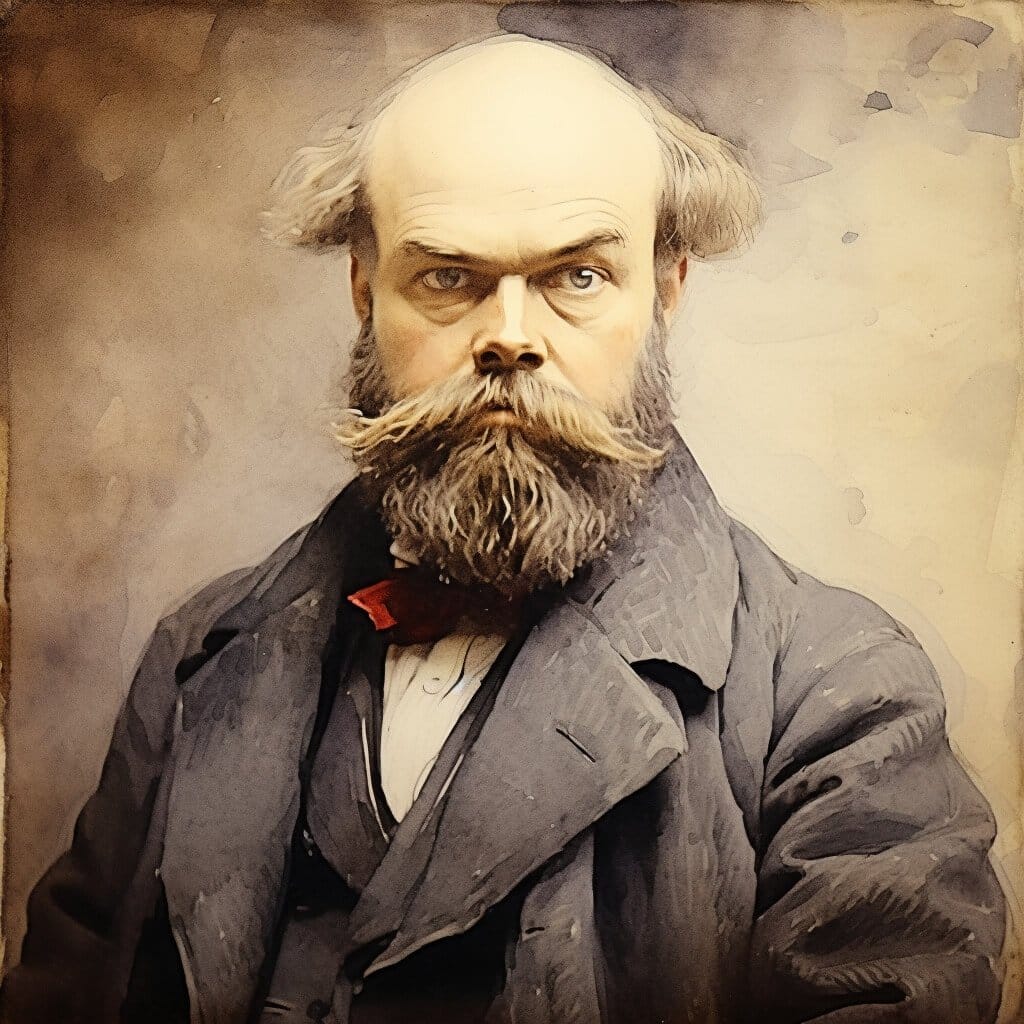Paul Verlaine was a well-renowned 19th-century French poet. His reputation spread far across Europe and cemented a legacy as a major poet of his era. Verlaine lived a colorful life with love affairs, alcoholism, violence, and genius. His personal exploits enriched his writings, and he eventually became an icon of French literature. Many talented contemporaries have used his work as inspiration on their poetic journey.
He had a varied life, which made him such a well-rounded poet. An example of this is his diversion from his previously wild, bohemian life to becoming a dedicated follower of Catholicism. It is said that he also converted his approach to poetry as time went on. He abandoned his Symbolist nature as he leaned toward more traditional forms, such as rhyme, which he maintained was vital for good poetry.
Early Life
Paul-Marie Verlaine was born in Metz, France, in March of 1844 into a moderately wealthy family. He had a fairly privileged upbringing, and as a young man, he was enrolled at the Lycée Impérial Bonaparte, now known as Lycée Condorcet, in Paris. He was seen as a promising student, and at only fourteen years old, he sent a poem to Victor Hugo. The works of Charles Baudelaire heavily influenced Verlaine, and he admired his work at a young age. Verlaine graduated in 1862 with a baccalauréat, or bachelor’s degree, and soon went on to work in civil service.
Early Career
Verlaine’s first published poem appeared the next year, in 1863, in the publication La Revue du progrès.
His social life revolved around a salon in which he met a number of prominent literary figures. These included Emmanuel Chabrier and Anatole France. Verlaine’s first collection of poetry, Poèmes saturniens, was published in 1866. It was seen as a successful first volume and garnered praise from critics. The work revolved around the poet’s unrequited love for his cousin, who died in 1867.
The following years saw Verlaine meet Mathilde Mauté de Fleurville. She was only seventeen years old when they married in 1870. It was this same year that Verlaine joined the 160th battalion of the Garde Nationale. He later became the head of the press bureau of the Central Committee of the Paris Commune after insurrectionists seized power and set up the Paris Commune.
Verlaine’s once-happy marriage began to fall apart when he became infatuated with the younger poet Arthur Rimbaud. As a result of this affair, Verlaine left his wife and child to travel to northern France, Belgium, and England with Rimbaud in 1872. They eventually made it to London, where Verlaine completed his volume, Romances. It was also during this period of time, while in Brussels, that after a drunken brawl in July 1873 with Rimbaud, Verlaine shot him in the wrist. He was subsequently imprisoned at Mons.
During his time in prison, Verlaine would study poets and hone his craft. He would read the likes of William Shakespeare, Charles Dickens, and Miguel de Cervantes. Going one step further, he would produce his work sans paroles, which went down as one of his best works.
Throughout his career, Verlaine would produce an impressive number of poetry collections. Some of his main publications were:
- Invectives (1896)
- Chair (1896)
- Confessions (1895)
- Femmes (1890)
- Les Poètes maudits (1884)
- Sagesse (1880)
- Romances sans paroles (1874)
- La Bonne Chanson (1870)
Later Life
After being released from prison he traveled once more to London, where he worked as a teacher of French, Latin, and Greek. He would also spend time teaching in Stickney in Lincolnshire as well as Boston and Bournemouth. In 1877, he returned to France, where he spent his final years in poverty as an alcoholic and drug addict. He was living a life of ‘debauchery’ throughout his later years which led to a decline in health during the 1880s and 90s. Paul Verlaine died in January 1896 as a result of his substance abuse.
Famous Poems
Paul Verlaine was responsible for some iconic works. Here are some of his most famous poems:
- ‘Clair de lune‘
- ‘Chanson d’automne‘
- ‘L’Ame du Vin‘
- ‘Monsieur Prudhomme‘
- ‘La Chanson des Ingénues‘
- ‘Les Poètes Maudits‘
Influences
Paul Verlaine’s poetry was inspired by a number of notable poets throughout his life. Some of these include the likes of Charles Baudelaire, Victor Hugo, Stéphane Mallarmé, Richard Wagner, and Arthur Rimbaud.
Paul Verlaine’s legacy left a mark on future poets for generations. Some of the greatest contemporary poets have used elements of Verlaine’s approach to writing. These include T.S. Eliot, Ezra Pound, Sylvia Plath, Allen Ginsberg, and Jim Morrison. It is even said that Alfred Lord Tennyson had great admiration for his work after Verlaine’s poetry gained a following in England.
FAQs
Paul Verlaine died of natural causes on January 8, 1896, at the age of 51. He was living in a sanatorium in Belgium at the time of his death.
Yes, Arthur Rimbaud and Paul Verlaine had a romantic relationship in the 1870s. They met in Paris in 1871 and quickly became close friends. Their relationship was tumultuous, however, and they often fought. In 1873, Verlaine shot Rimbaud in the wrist during a quarrel. Verlaine was arrested and imprisoned for two years. After his release, Verlaine and Rimbaud never saw each other again.
Paul Verlaine was influenced by a number of poets, including Charles Baudelaire, Victor Hugo, and Stéphane Mallarmé. He was also influenced by the music of Richard Wagner.
Verlaine was a Symbolist poet. Symbolist poets use symbols to represent abstract ideas. Paul Verlaine’s poetry is often characterized by its musicality and dedication to creating images.
Paul Verlaine was imprisoned due to the incredible incident that happened between himself and Arthur Rimbaud. After having a heated argument, Verlaine shoots Rimbaud in the wrist, landing Verlaine with a stay in prison.


